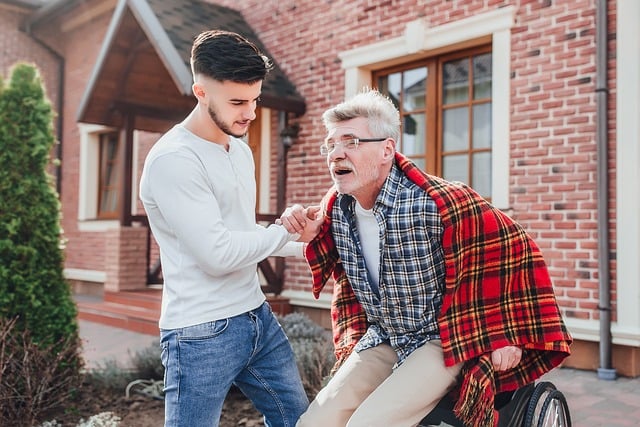Unlock Essential Housing Grants for Disabled Veterans: Enhance Accessibility and Comfort with VA Assistance
Veterans who have sacrificed for their country deserve a comfortable and accessible home. The Department of Veterans Affairs (VA) offers housing grants to disabled veterans, enabling them to modify their residences for improved accessibility and independence. This article explores these vital benefits, guiding veterans through the process of securing housing assistance to enhance their quality of life.

What are VA housing grants for disabled veterans?
VA housing grants are financial assistance programs designed to help disabled veterans purchase, construct, or modify homes to accommodate their service-connected disabilities. These grants aim to provide veterans with safe, barrier-free living environments that promote independence and improve their overall well-being. The VA offers several types of grants, including the Specially Adapted Housing (SAH) grant, the Special Housing Adaptation (SHA) grant, and the Temporary Residence Adaptation (TRA) grant. Each program caters to different needs and levels of disability, ensuring comprehensive support for eligible veterans.
How do VA housing grants improve home accessibility?
VA housing grants facilitate a wide range of modifications to enhance home accessibility for disabled veterans. Common improvements include:
-
Widening doorways and hallways to accommodate wheelchairs
-
Installing ramps or elevators for easier entry and exit
-
Adapting bathrooms with roll-in showers, grab bars, and raised toilets
-
Lowering countertops and cabinets in kitchens
-
Adding handrails and non-slip flooring throughout the home
-
Implementing smart home technology for improved control of lighting, temperature, and security
These modifications not only improve the veteran’s ability to navigate their home but also reduce the risk of accidents and injuries, promoting a safer living environment.
Who is eligible for VA housing assistance?
Eligibility for VA housing grants is primarily based on the nature and severity of a veteran’s service-connected disabilities. Generally, veterans who have lost or lost the use of one or more limbs, have severe burn injuries, or are blind may qualify for these grants. Specific eligibility criteria include:
-
Having a permanent and total service-connected disability
-
Acquiring the disability as a result of military service
-
Being the owner or future owner of the home to be modified
-
Meeting specific disability requirements for each grant type
It’s important to note that eligibility requirements may vary depending on the type of grant and the individual circumstances of the veteran. Veterans are encouraged to contact their local VA office or visit the VA website for detailed eligibility information.
How can veterans apply for housing grants?
The application process for VA housing grants involves several steps:
-
Determine eligibility by reviewing the requirements for each grant type
-
Gather necessary documentation, including proof of service-connected disability and homeownership
-
Complete VA Form 26-4555, “Application in Acquiring Specially Adapted Housing or Special Home Adaptation Grant”
-
Submit the application online through the eBenefits portal or by mail to the local VA regional office
-
Await notification from the VA regarding the status of the application
-
If approved, work with a VA-assigned Specially Adapted Housing (SAH) agent to plan and implement home modifications
Veterans should be prepared for a thorough review process, which may include home inspections and consultations with medical professionals to assess the need for specific modifications.
What unique benefits do VA housing grants offer?
VA housing grants provide several unique advantages for disabled veterans:
-
Substantial financial assistance: Grants can cover a significant portion of home modification costs, reducing the financial burden on veterans and their families.
-
Customized solutions: The grants allow for tailored modifications that address each veteran’s specific needs and disabilities.
-
Improved quality of life: By enhancing home accessibility, these grants enable veterans to live more independently and comfortably.
-
Lifetime benefit: Eligible veterans can use the grants multiple times up to the maximum amount allowed, accommodating changing needs over time.
-
Expert guidance: VA-assigned SAH agents provide valuable expertise throughout the modification process, ensuring optimal results.
These benefits not only support veterans’ physical needs but also contribute to their overall well-being and sense of dignity.
How can veterans maximize accessibility and comfort at home?
To make the most of VA housing grants and create an optimal living environment, veterans should consider the following tips:
-
Conduct a thorough assessment of daily activities and challenges to identify all necessary modifications
-
Consult with occupational therapists and accessibility experts to develop a comprehensive modification plan
-
Prioritize modifications based on immediate needs and long-term benefits
-
Consider future needs and potential changes in mobility when planning modifications
-
Explore energy-efficient and sustainable options that can reduce long-term costs
-
Incorporate universal design principles to create a home that is accessible for all family members and visitors
-
Stay informed about advancements in assistive technology and home automation that can further enhance accessibility and comfort
By taking a holistic approach to home modifications, veterans can create living spaces that not only meet their current needs but also adapt to future changes, ensuring long-term comfort and independence.
In conclusion, VA housing grants offer invaluable support to disabled veterans, providing the means to create accessible, comfortable homes that enhance their quality of life. By understanding the available grants, eligibility criteria, and application process, veterans can take advantage of these essential benefits and transform their living spaces into environments that promote independence, safety, and well-being.




